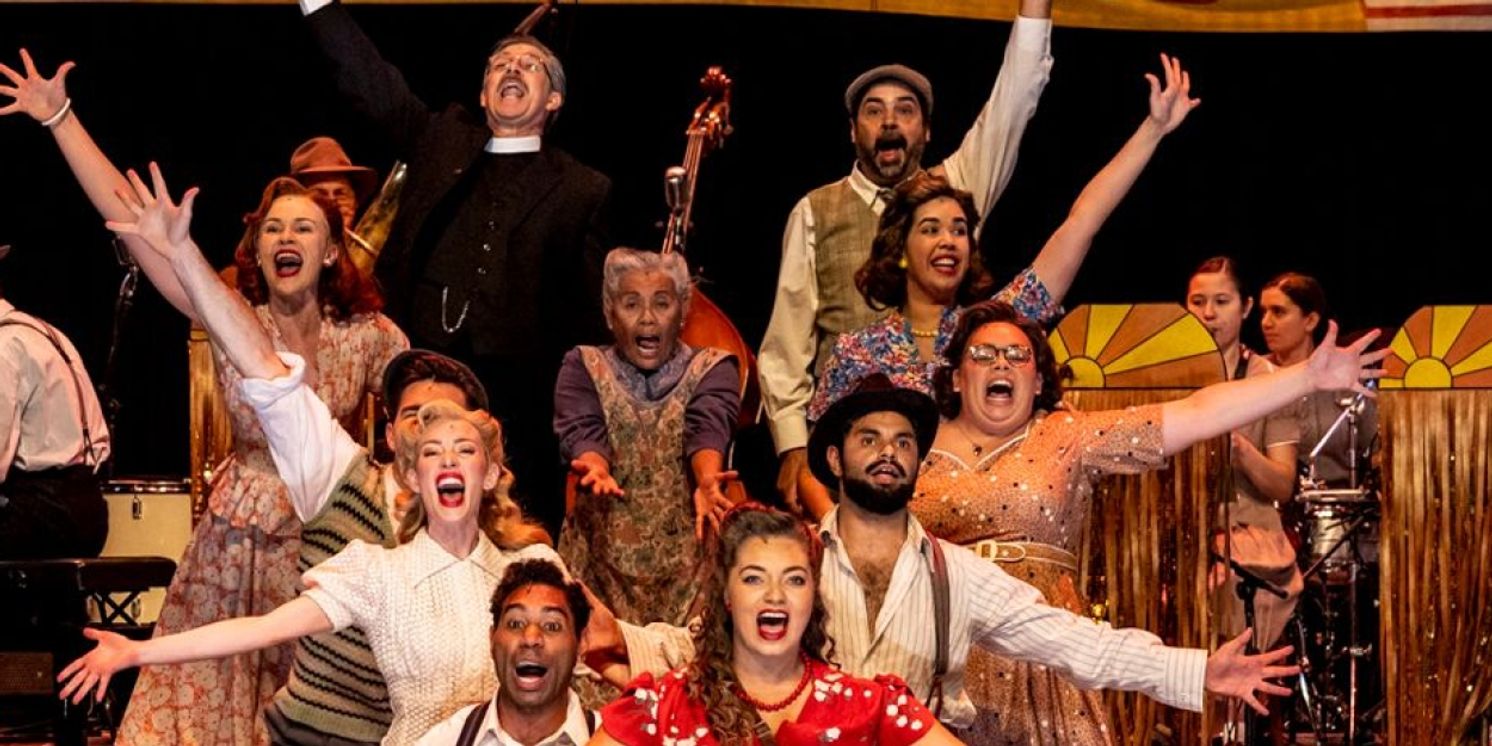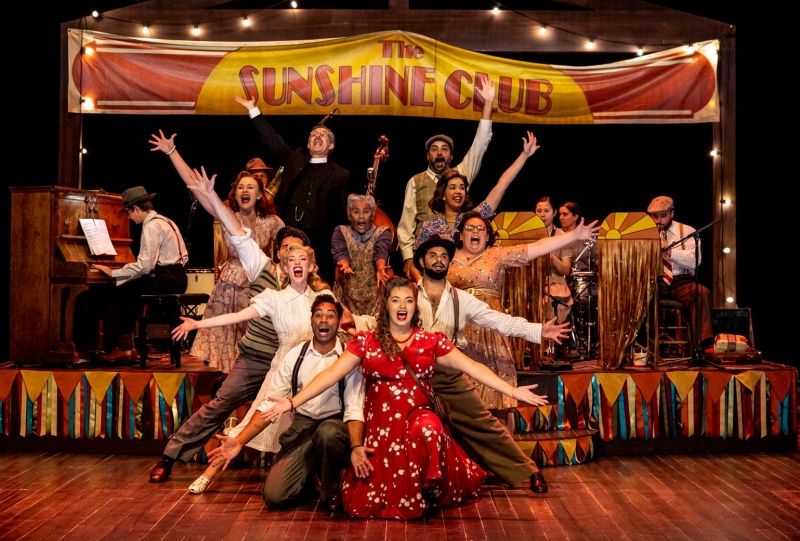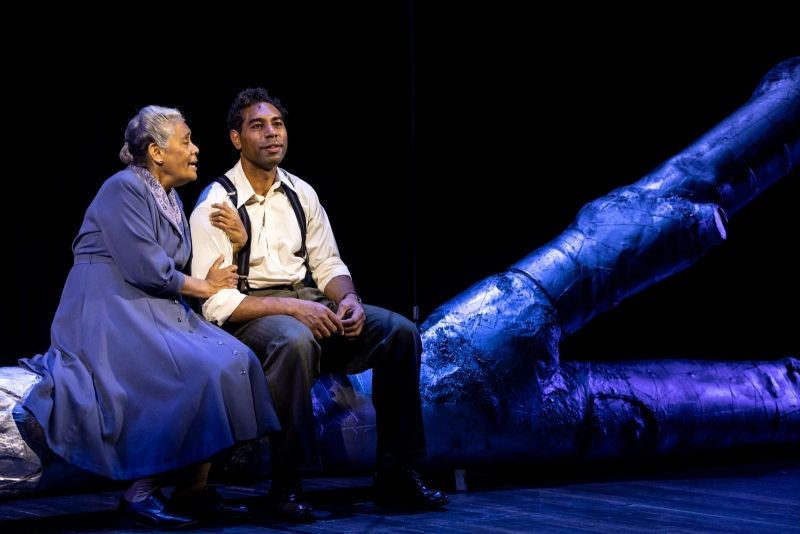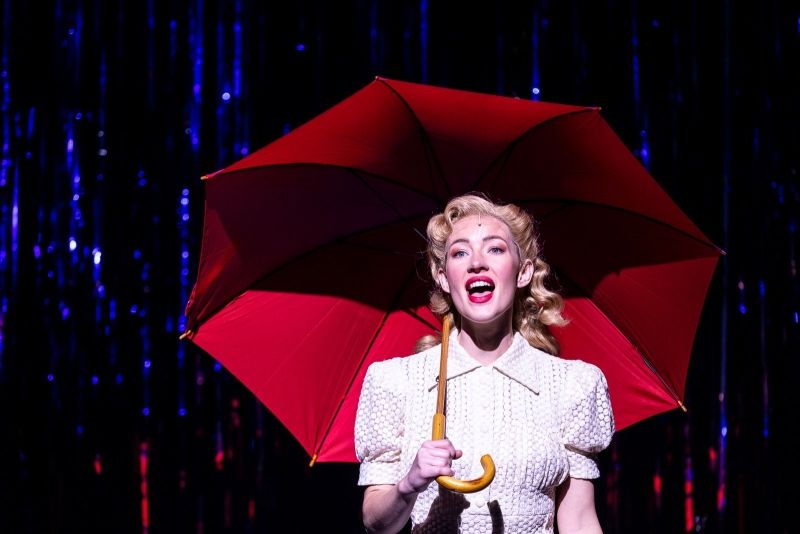Review: THE SUNSHINE CLUB at Queensland Theatre
This production runs until the 30th of October

Queensland Theatre's The Sunshine Club radiates love, the beauty of hope and the power of community whilst not shying away from the inequality and continuous harsh and oppressive reality of racial segregation, violence, and the loss of culture that Indigenous Australians still face today. It's a celebration of resilience and a reminder of how far we still need to go in respecting and honouring First Nations stories and connections to their land.

In 2022, director and writer Wesley Enoch's The Sunshine Club has returned to dance and sing its way along the Queensland Theatre's stage, a short 23 years after it debuted. As Enoch mentions in his writer/directors note in the program, the play takes place between 1999 and 2000 in a time when an excitement for the future and the shifting cultural landscape was coupled with a nostalgia for a bygone era.
Set in 1946 at the end of the Second World War, the play explores the story of an Indigenous soldier, Frank Doyle (Marcus Corowa) who returns home from the horrors of war, perhaps naively hopeful that Indigenous and non-Indigenous Australians can live side by side. However, he soon learns that reality is still but a dream when the bouncer restricts him from getting into Cloudland, the local club run by white folk. Segregation still prevails, a curfew is in place, and his movements are restricted to his side of the Brisbane River. Thus, after getting an exemption from Reverend Morris father of his neighbour and "friend" Rose, Doyle opens The Sunshine Club, offering an night of 1940's jazz, in which black and white can come together and dance every Saturday night, in which mob wouldn't have to worry as much about police brutality unless they were caught drinking.

Doyle's narrative is told through song and dance; a metaphor itself of the club life that the characters experience as well as the significance that song and dance have in First Nations' storytelling.
Enoch's direction is full of exquisite symbols of hope, humanity and grief. From couples dancing intimately in black and white respective costumes as Naarah sings Passionfruit Vine, a song about the stolen generation and the fear of what future awaits her unborn child in a colonial world, to set designer Jacob Nash's gorgeous eucalyptus trunk that is a frequent symbol of nature and community that threads the stories together...everything is layered with meaning.
Corowa plays the role of Doyle with the perfect blend of charm and naïve optimism that gave way to the anger that his character repressed in his final scenes of the show. Irena Lysiuk played his love interest, blissfully ignorant Rose Morris with wide-eyes and a youthful gait. She was so lost in her white privilege, her prejudiced mannerisms and narrow worldview, that I wanted to reach out from the audience and shake her. I wanted to yell at her to open her eyes and when she finally did I felt my body let out a sigh of relief.

Naarah played Frank's sister, Pearl, with such sass in parallel with heart. Jealous of Rose and the opportunities thrown her way; opportunities that Pearl can only dream of having. Pearl's character, by far, is the one we are drawn to the most. The one we root for. The one we want to hold and let cry on our shoulder but equally want to lift her up above our shoulders and allow her to soar.
For me, the star of the show was Beau Dean Riley Smith who played Dave Daylight, a lovesick character who brought such joy, laughter and comedy to the plot. For his acting debut, he could not have performed a more brilliant performance. Totally encapsulated the audience with each line and I imagine his song Menzies will be the talk of the town for quite some time. Nadine
Ben Hughe's lighting both sets the scene and the mood of each moment in the plays narrative. One of my favourite moments in the play is when Lysiuk was singing a song in the rain, surrounded by the silver confetti-like curtain material hanging from the ceiling which created the image of the pitter patter of rain as she held her red umbrella. Richard Roberts' costumes are radiant underneath Hughe's beams and encapsulate the 1940's fasion and style; from the women's dresses to the men's hats.
John Rodgers' music transports us straight back into the 1940's, with jive, ballroom and swing as its core. The five musicians are always at the centre of the action on a moving banstand with the shiney, yellow Sunshine Club banner hanging overhead. Made up of original Musical Director, Wayne Freer, reprising his role and additionally playing both bass, trombone and euphonium, jazz pianist, Stephen Newcomb, drummer Katie Randall, trumpet player and piano accordion player Michael Whitaker and saxophonist Mika Anderson; the band is top notch.
The staging of the finale, 'If Not Now Then When?' which the ancestors sing still replays in my mind as I write this review. What a powerful image. What a haunting song. What pain and sorrow. There was not a dry tear in the audience.

Now, I don't want to spoil the ending up the way Enoch packaged the story together was so delightful and charming. What an incredible device. Perfectly brought the story to a hopeful and inspiring end without ending the story at all.
The Sunshine Club is a show everyone needs to see. You will be confronted by our history and asked to reflect on our present. You will be left with pain of how fair black and white Australia need to go, but hope that through telling these stories, we will get there.
Rating: 5 stars
Photography by Brett Boardman
Reader Reviews

Videos

